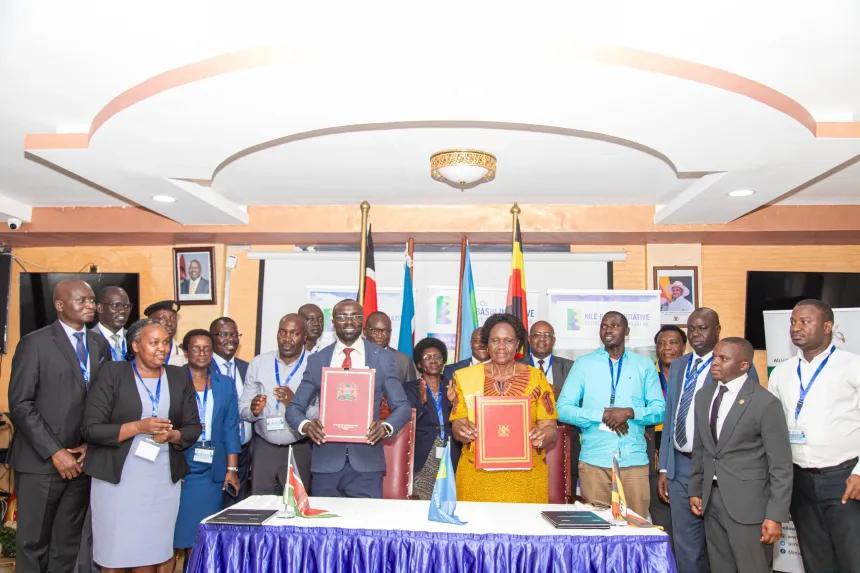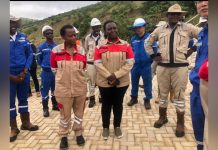Africa-Press – Uganda. The Governments of Uganda and Kenya, in collaboration with the Nile Basin Initiative (NBI) and the Nile Equatorial Lakes Subsidiary Action Programme (NELSAP), have launched the $137 million (about Shs513 billion) Angololo Water Resources Development Project.
This transboundary initiative aims to transform the Sio-Malaba-Malakisi (SMM) River Sub-basin, benefiting over 300,000 people in both countries.
The project was officially launched during a signing ceremony in Busia County, Kenya, with Uganda’s State Minister for Environment, Beatrice Anywar Atim, and Kenya’s Cabinet Secretary for Water, Sanitation, and Irrigation, Eng Erick Muriithi, leading their respective delegations.
The event was attended by key stakeholders, including officials from the NBI, NELSAP, AfDB, World Bank, and various governmental bodies.
The $137 million funding, provided by the African Development Bank and the NEPAD-IPPF Special Fund, will focus on infrastructure and core investments ($132.15 million), with additional funds allocated for land acquisition and resettlement ($4.77 million).
The project aligns with Kenya’s Vision 2030 and Uganda’s Vision 2040, aiming to improve food, water, and energy security, as well as boost regional trade.
Hon. Anywar Atim highlighted the project’s potential to strengthen ties between Uganda and Kenya, noting its role in improving agriculture, fisheries, and employment opportunities.
She emphasized that the initiative supports sustainable development goals, including poverty reduction, food security, clean water, and affordable energy.
The project’s multi-sectoral approach focuses on sustainable resource management, climate resilience, and job creation, particularly benefiting women, youth, and people with disabilities.
Hon. Anywar noted that women, in particular, would benefit from reduced water-fetching burdens and new economic opportunities in farming and trading.
The Angololo project will also improve cross-border trade in agricultural products and energy, with a focus on joint resource management.
Dr Callist Tindimugaya, the director for Water Resources Management, praised the collaborative effort, noting that trust and political support have been key to its success.
The Regional Coordinator for NELSAP-CU, Dr. Isaac Alukwe, emphasized that the project’s impact goes beyond infrastructure, aiming to empower communities and build resilience against climate challenges.
Farmers will benefit from improved irrigation, leading to better yields, while households will gain access to reliable water sources, improving health and reducing water-fetching time.
Kenya’s Cabinet Secretary, Eng. Muriithi, underscored the project’s dual focus on food security through aquaculture and flood control through enhanced watershed management.
Dr. Florence Adongo, executive director of the Nile Basin Initiative, celebrated the agreement as a milestone in transboundary cooperation, reinforcing the potential of shared waters to foster peace and prosperity.
The project features key elements such as a 40-meter-high dam with a 31.6 million cubic meter storage capacity, a 1.3 MW mini hydropower plant, a 4,000-hectare irrigation scheme, and infrastructure for flood control.
It also includes fisheries and aquaculture programs to support food security and local enterprises.
With preparatory work completed, the next stage will involve project structuring, financial mobilization, and construction. The operational phase is expected to begin in 2030.
For More News And Analysis About Uganda Follow Africa-Press






